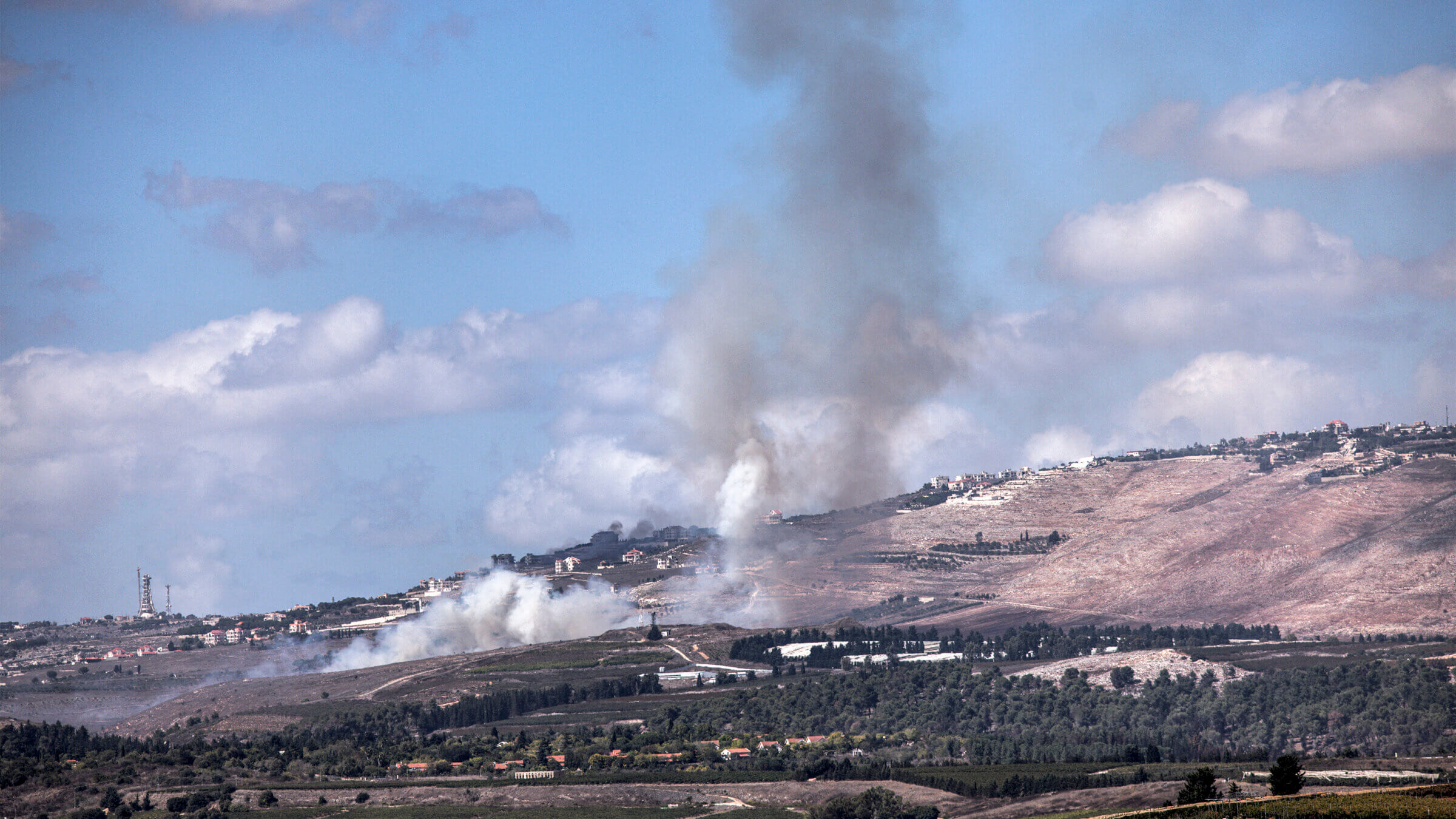This is the most disorienting Rosh Hashanah in memory
A metastasizing war inspires uncertainty, anxiety and ambivalence

A smoke plume billows from a fire that broke out after a rocket fell in the Israeli side of the border with Lebanon, in the Upper Galilee region of northern Israel, on Oct. 2, 2024. Photo by Getty Images
Rosh Hashanah is always a confusing holiday: part joyful, part solemn, part celebration, part repentance. But this year is the most confusing I can remember.
Tonight, Jews march off to synagogue (or not) while Iranian missiles may be raining down on Israel. Or Israeli missiles on Iran. We are aware that the anniversary of Oct. 7 is on Monday and that Israeli hostages are still being held by Hamas. We disagree, obviously, on the merits of the Gaza War and the way the Israeli government is setting priorities. But we are all — or least many of us are — disoriented, confused, ambivalent and anxious.
A friend of mine just sent me a Rosh Hashanah greeting in which she meant to wish me a “a sweet new year full of good adventures,” but either Freudian-slipped or autocorrected to “a sweet new tearful.” That says it all.
As painful and divisive as the war in Gaza was for American Jews, this new metastasizing of the conflict is even more disorienting. Whether we supported, opposed, or supported-but-then-opposed the Gaza war, it was filled with anguish: thousands of dead and displaced Palestinians, many dead soldiers, and, as of this week, 97 Israelis still held hostage. And after nearly a year, for liberal and many centrist Jews, the time has long since passed for the Netanyahu government to end the war, bring the Israeli hostages home, and sign a ceasefire deal.
This round is different. Unlike in Gaza, Israel’s actions against Hezbollah have been relatively targeted. Each innocent life lost is a tragedy, and there have been many Lebanese civilians caught in the crossfire. But there’s no comparison to the tragedy of Gaza.
And Hezbollah — contrary to the preposterously ignorant statements coming from some ill-informed left-wing idiots — are widely loathed theocratic terrorists who have taken over parts of a country that doesn’t want them there, brutalizing its own citizens whenever necessary. Nor does Hezbollah represent Palestinians living under occupation; they just represent Iran’s interests in regional dominance. I don’t possess the strategic intelligence to say whether assassinating Hassan Nasrallah will advance Israel’s security or not, but I’m shedding exactly zero tears for him.
Besides, even many progressives (though not all) were impressed by Israel’s targeting of Hezbollah pagers last month. Again, there were some innocent people harmed by this attack, but it’s hard to think of a more focused form of counter-terrorism than this. If this action isn’t justified, what is?
At the same time, it’s hard to trust anything the Netanyahu government says or does. For now, it looks like Bibi has resisted calls for an invasion of Southern Lebanon, but that could change in a moment. He’s still the same self-serving opportunist who is prolonging the Gaza War rather than bringing the Israeli hostages home with a ceasefire deal.
And now Iran. On the one hand, obviously some military response from Iran had to have been expected. Israel’s devastating blows against Hezbollah necessitated some kind of response, and Iran to appears to have primarily focused on military targets.
But as someone with friends and family in Israel, and who lived there for three years, the videos, the accounts of friends huddling in shelters — all of this is just heartbreaking. This phase of the crisis has — so far, thank God — produced less anguish than the war in Gaza. But it has produced more anxiety. What will come next? Will Bibi escalate? Will Iran escalate?
So, let’s see. There’s heartbreak, anxiety, ambivalence, support for Israel, suspicion of Israel’s leadership, concern for innocent people caught in the crossfire, ongoing concern for the residents of Gaza and for the hostages held by Hamas, and, oh right, the seasonal invitation to review my own actions and heed the call of the shofar, but also enjoy apples and honey and festive meals with family and friends.
What am I forgetting here? Well, I haven’t mentioned the still-tied American election; the devastation wrought by climate-crisis-enhanced superstorms; the rise in antisemitism, the traumatized responses to it, the exaggeration and exploitation of it. And, you know, the ordinary stresses of being a parent and human in 2020s America.
The rabbi/meditation teacher in me wants to say, both to you and to myself: Wow, that’s a lot.
No, it’s not as much as what my friends in Beersheva and Haifa are dealing with right now. Or the people I don’t know in Beirut or Rafah and everywhere in the region, who suffer just as we do. But self-compassion and wisdom is not a competition. Other people have it harder, and this is hard (or at least disorienting and confusing) for everyone.
What helps me cultivate resilience is, at is happens, part of Rosh Hashanah as well: the awareness of linear and cyclical time, the turning of seasons and years, and the re-turning to that which is timeless, ever-present, and, it seems, a source of love and solace. Holech sovev haruach, v’al svivotav shav haruach, says Ecclesiastes 1:6 — the wind spins around, and the wind returns.
Whether this aspect of being is God or love or the Universe or simply a disposition of mind – that question is beyond my pay grade. But I know that it is possible to experience both time and the timeless, the insane maelstrom of Rosh Hashanah 5785 and a peace within and beyond it, the swirling of the wind and the wind itself.
Other than that, I have no idea what’s ahead. Shana Tova.






















